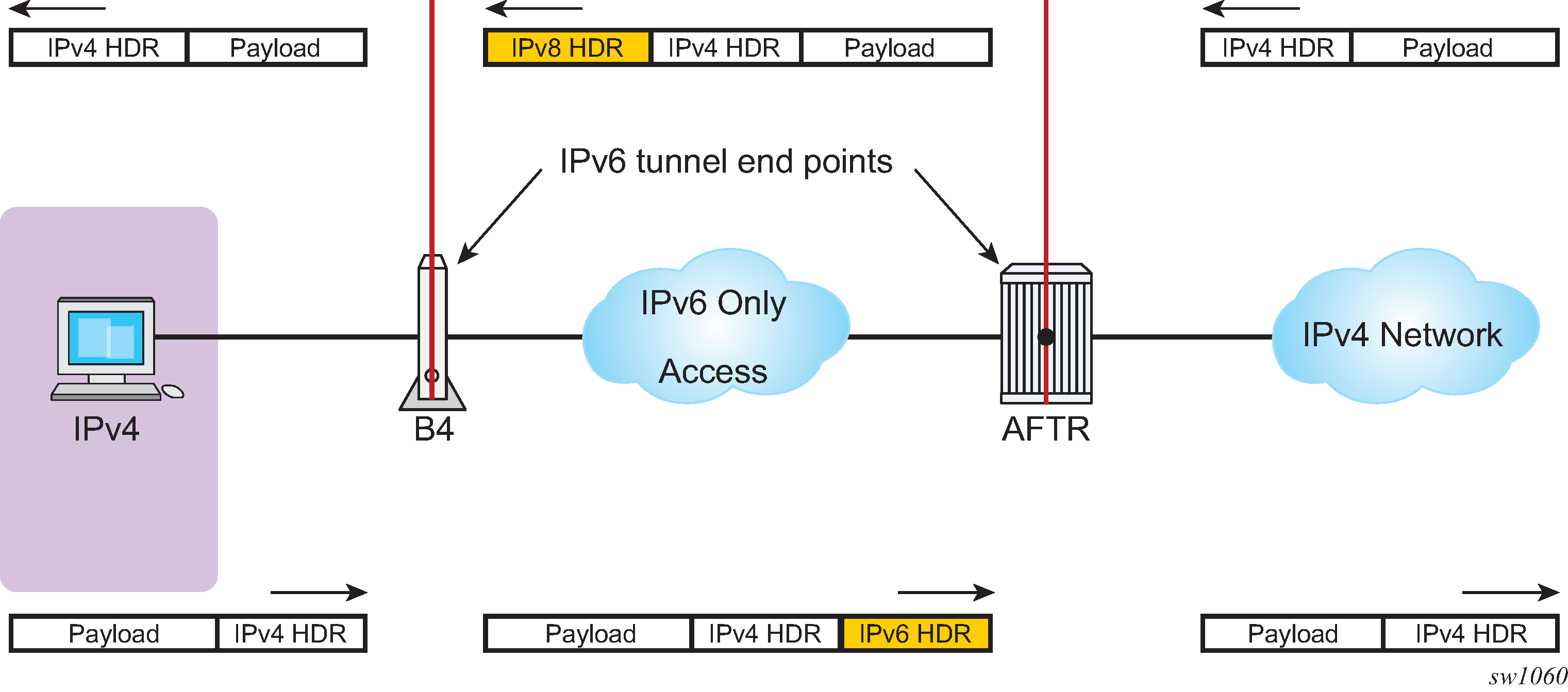In the downstream direction, the IPv6 packet carrying IPv4 packet (IPv4-in-IPv6) is fragmented in the ISA in case the configured DS-Lite tunnel-mtu is smaller than the size of the IPv4 packet that is to be tunneled inside of the IPv6 packet. The maximum IPv6 fragment size is 48bytes larger than the value set by the tunnel-mtu. The additional 48 bytes is added by the IPv6 header fields: 40 bytes for the basic IPv6 header plus 8 bytes for extended IPv6 fragmentation header. NAT implementation in the routers does not insert any extension IPv6 headers other than fragmentation header.
Figure: DS-Lite shows DS-Lite IPv6 fragmentation.

If the IPv4 packet is larger than the value set by the tunnel-mtu, the fragmentation action depends on the configuration options and the DF bit setting in the header of the received IPv4 header:
The IPv4 packet can be dropped regardless of the DF bit setting. IPv6 fragmentation is disabled.
The IPv4 packet can be encapsulated in IPv6 packet and then the IPv6 can be fragmented regardless of the DF bit setting in the IPv4 tunneled packet. The IPv6 fragment payload is limited to the value set by the tunnel-mtu.
The IPv4 packet can be encapsulated in IPv6 packet and then the IPv6 can be fragmented only if the DF bit is cleared. The IPv6 fragment payload is limited to the value set by the tunnel-mtu.
If the IPv4 packet is dropped because of fragmentation not being allowed, an ICMPv4 Datagram Too Big message is returned to the source. This message carries the information about the size of the MTU that is supported, by notifying the source to reduce its MTU size to the requested value (tunnel-mtu).
The maximum number of supported fragments per IPv6 packet is 8. Considering that the minimum standard based size for IPv6 packet is 1280 bytes, 8 fragments is enough to cover jumbo Ethernet frames.
configure
[router] | [service vprn]
nat
inside
dual-stack-lite
address <IPv6 Addr>
tunnel-mtu bytes
ip-fragmentation {disabled | fragment-ipv6 | fragment-ipv6-unless-ipv4-df-set}